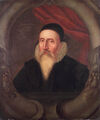Template:Selected anniversaries/July 13: Difference between revisions
No edit summary |
No edit summary |
||
| Line 12: | Line 12: | ||
||1807: Johann III Bernoulli dies .... He was known around the world as a child prodigy. Pic. | ||1807: Johann III Bernoulli dies .... He was known around the world as a child prodigy. Pic. | ||
||1831: Arthur Böttcher born ... pathologist and anatomist. | ||1831: Arthur Böttcher born ... pathologist and anatomist. Pic. | ||
||1854: Aristarkh Apollonovich Belopolsky born ... Russian astronomer. Pic: https://ipfs.io/ipfs/QmXoypizjW3WknFiJnKLwHCnL72vedxjQkDDP1mXWo6uco/wiki/Aristarkh_Apollonovich_Belopolsky.html | ||1854: Aristarkh Apollonovich Belopolsky born ... Russian astronomer. Pic: https://ipfs.io/ipfs/QmXoypizjW3WknFiJnKLwHCnL72vedxjQkDDP1mXWo6uco/wiki/Aristarkh_Apollonovich_Belopolsky.html | ||
| Line 44: | Line 44: | ||
File:Nixon April-29-1974.jpg|link=Watergate scandal (nonfiction)|1973: [[Watergate scandal (nonfiction)]]: Alexander Butterfield reveals the existence of the "Nixon tapes" to the special Senate committee investigating the [[Watergate scandal (nonfiction)|Watergate break-in]]. | File:Nixon April-29-1974.jpg|link=Watergate scandal (nonfiction)|1973: [[Watergate scandal (nonfiction)]]: Alexander Butterfield reveals the existence of the "Nixon tapes" to the special Senate committee investigating the [[Watergate scandal (nonfiction)|Watergate break-in]]. | ||
||1974: Patrick Blackett dies ... physicist and academic, Nobel Prize laureate. Pic. | ||1974: Patrick Blackett dies ... physicist and academic, Nobel Prize laureate ... known for his work on cloud chambers, cosmic rays, and paleomagnetism, winning the Nobel Prize for Physics in 1948.[5] In 1925 he became the first person to prove that radioactivity could cause the nuclear transmutation of one chemical element to another. Pic. | ||
File:Hilary Putnam.jpg|link=Hilary Putnam (nonfiction)|1974: Mathematician and crime-fighter [[Hilary Putnam (nonfiction)|Hilary Putnam]] publishes his landmark paper arguing that mathematics is not purely logical, but "quasi-empirical", and that we should beware the possibility of "[[Crimes against mathematical constants|quasi-empirical crimes]]". | File:Hilary Putnam.jpg|link=Hilary Putnam (nonfiction)|1974: Mathematician and crime-fighter [[Hilary Putnam (nonfiction)|Hilary Putnam]] publishes his landmark paper arguing that mathematics is not purely logical, but "quasi-empirical", and that we should beware the possibility of "[[Crimes against mathematical constants|quasi-empirical crimes]]". | ||
Revision as of 15:11, 4 March 2019
100 BC: Roman general and statesman Julius Caesar born. He will play a critical role in the events that led to the demise of the Roman Republic and the rise of the Roman Empire.
1527: Mathematician, astronomer, and astrologer John Dee born. He will achieve high status as a scholar and play a role in Elizabethan politics.
1956: John McCarthy (Dartmouth College), Marvin Minsky (MIT), Claude Shannon (Bell Labs), and Nathaniel Rochester (IBM) assemble the first coordinated research meeting on the topic of "Artificial intelligence" at Dartmouth College in Hanover, NH. USA.
1972: Signed first edition of Skip Digits, Conductor sells for one million dollars; House Democrats say money trail leads to Richard Nixon.
1973: Watergate scandal (nonfiction): Alexander Butterfield reveals the existence of the "Nixon tapes" to the special Senate committee investigating the Watergate break-in.
1974: Mathematician and crime-fighter Hilary Putnam publishes his landmark paper arguing that mathematics is not purely logical, but "quasi-empirical", and that we should beware the possibility of "quasi-empirical crimes".
2015: Steganographic analysis of Blue City Sunset reveals "five hundred kilobytes, perhaps six hundred" of previously unknown Gnomon algorithm functions.






